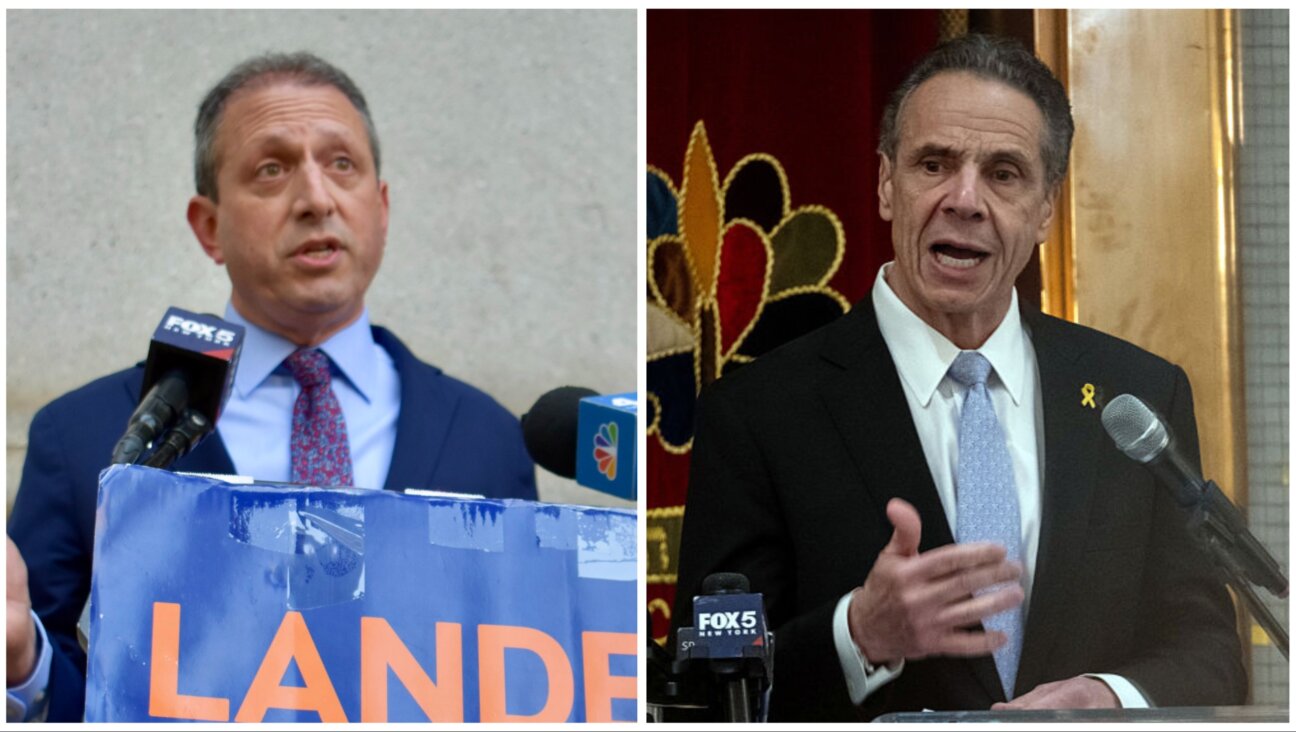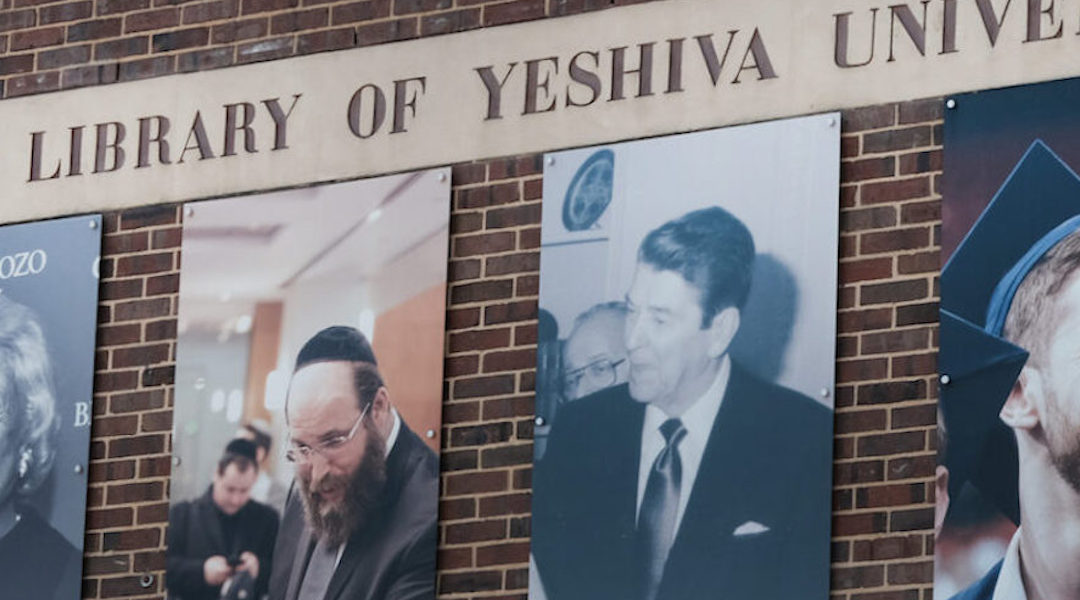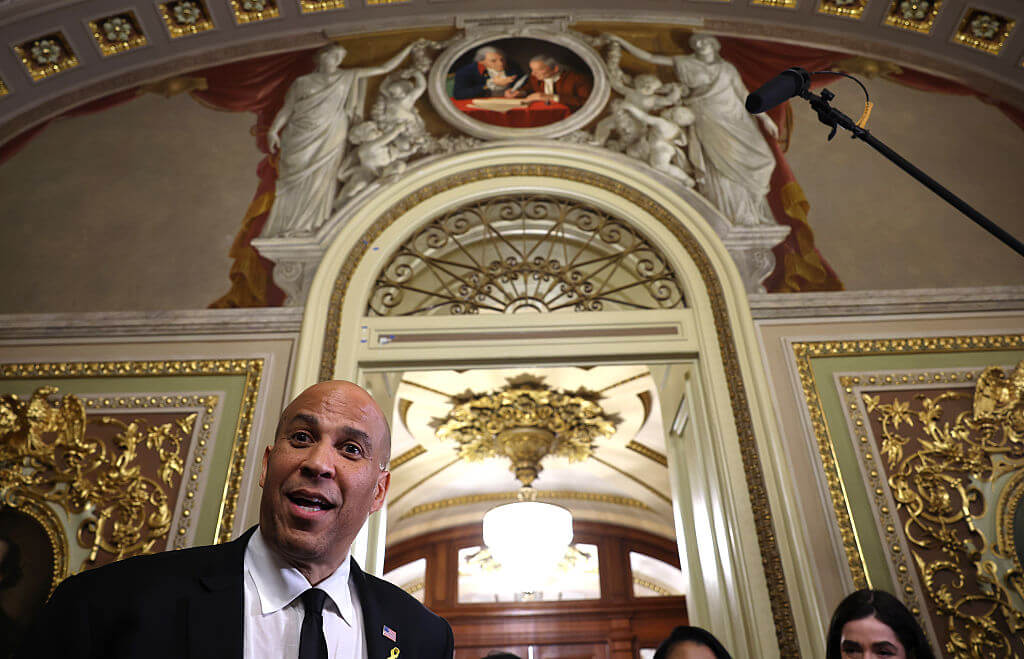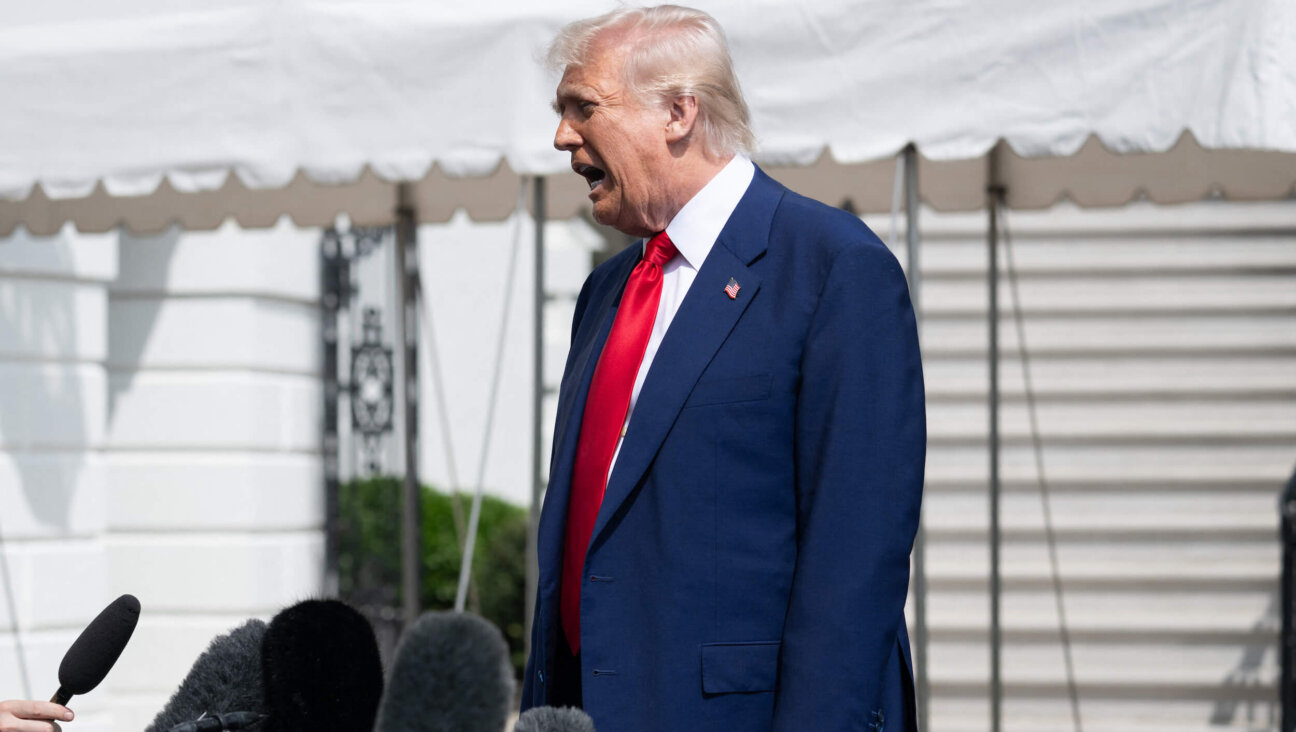Palestinians Rethink Statehood Bid

Image by getty images

Talk Shop: The Palestinian statehood bid was expected to be a dramatic showdown at the United Nations Security Council. Instead, the Palestinians came away with little, and Israel?s dire warnings turned out to be shrill. Image by getty images
Israelis warned of a “diplomatic tsunami,” Palestinians promised a game changer that would reshape Middle East peacemaking, and the White House and Congress geared up for an all-out battle inside and beyond the United Nations.
But on November 11, the Palestinians’ initiative to gain statehood recognition from the U.N. Security Council ended finally not with a bang, but with a whimper.
That day, a subcommittee of the U.N. Security Council tasked with debating the Palestinian request for full membership submitted its report with no recommendation. Failing to reach a majority of members supportive of the bid, the subcommittee did not call on the Security Council to vote on accepting Palestine as a member state. Despite this, and despite the certainty they will lose there, Palestinian Authority leaders decided in a November 16 meeting in Ramallah to request a Security Council vote.
The process that began on September 23 with Palestinian Authority President Mahmoud Abbas waving the statehood request document in front of a cheering audience at the U.N. General Assembly thus ended with a set of low-key Security Council meetings and a mumbled Palestinian promise to “continue knocking on the door of the Security Council,” Palestinian foreign minister Reyad Al-Malki put it on November 16.
“The initiative has failed, for now,” said David Makovsky, director of the Washington Institute for Near East Policy’s Project on the Middle East Peace Process, “but I don’t think the Israelis should dance the hora.” The Palestinians, he explained, “defined success as defiance more than they defined success as success,” and therefore, internally, Palestinians can still be pleased by their move.
The Palestinians needed nine countries to vote in favor of their request, but managed to secure only eight. A concerted diplomatic drive by the Obama administration secured “no” votes or abstentions from Bosnia-Herzegovina, Colombia, Britain, France, Germany and Portugal. Put together, this was enough to kill the Palestinian bid without America using its veto power on the council — a move it sought urgently to avoid.
As the dust settles, experts diverge in their opinions about the domestic and political impact of the Palestinian effort. All agree that it failed to achieve its fundamental goal: obtaining recognition of Palestine as a full U.N. member. But some see ancillary purposes fulfilled in the process.
One mystery involves the Palestinians’ basic strategy of going first to the 15-member Security Council rather than to the much larger, more pro-Palestinian G.A. The Palestinians knew in advance that they’d face difficulties reaching a majority in the council. And they knew that even if they obtained a majority there, the United States would exercise its veto power on the council to kill the resolution. A possible alternative could have been asking the G.A. to upgrade Palestine’s status, a move that would have been sure to win approval. The G.A.’s approval would not have given Palestine full statehood, but it would have brought other benefits, including the right to bring legal cases against Israel before the International Criminal Court in The Hague. Prior approval by the G.A. may have also put additional political pressure on the Security Council.
But a Palestinian observer, who asked not to be named because of his current position, said Abbas wanted the symbolism and cared less about the end result. “He needed something big that would energize his people,” the observer said.
Daniel Levy, director of the New America Foundation’s Middle East Task Force, believes that Abbas’s choice of a sure loss at the Security Council over a foolproof win in the G.A. reflected a tacit choice by the Palestinian leader to take the course of least interference with the United States and the peace process. “It was the most gentle move he might have taken,” said Levy, a former Israeli peace negotiator. “Abbas never wanted to take Israel to the International Criminal Court.”
While the Palestinians failed to change their legal status in any way, they did succeed, to a certain extent, in changing the peace process dynamics. “They wanted to make a point, to shake things up a bit and to place the negotiations in another light,” said Hussein Ibish, a senior research fellow at the American Task Force on Palestine. “In that sense, they made their point.”
For Abbas, however, a key reason for launching the move was domestic. And here he gained at least short-term success. After leaked documents offered humiliating revelations about important secret concessions his negotiators had made to Israel during talks with the government of Prime Minister Ehud Olmert, Abbas “was looking to salvage some domestic legitimacy and to buy some time for himself,” Levy said.
“Domestically, he was strengthened greatly,” Ibish added. But, he stressed, much of this gain was offset by Israel’s October decision to enact a huge prisoner-swap deal with Hamas, the P.A.’s hard-line rival, for the release of Gilad Shalit. “Hamas wanted to undo some of Abass’s achievements, and Israel tried to punish him for his actions,” said Ibish, explaining the impact of the Shalit deal on Palestinian internal politics.
Looking forward, the Palestinians face several options, none of which is seen as having the potential to reignite excitement on the Palestinian streets.
In the U.N., the Palestinians can go ahead with their request for a Security Council vote, only to fail, or they could seek the G.A. upgrade they had previously set aside. The P.A. could also build on its success in becoming a member of UNESCO and seek state-level membership in other U.N. agencies, with a specific focus on the International Atomic Agency, the World Intellectual Property Organization and perhaps the World Health Organization. Congressional legislation obliges the United States to cut its funding to any international organization that recognizes Palestinian statehood unilaterally, outside the framework of a negotiated Israeli-Palestinian peace agreement. But the work of some of these organizations is viewed as crucial to national interests of the U.S., and this could put the Americans on the spot.
Another avenue open for Palestinians is to continue reaching out to individual nations for bilateral recognition. This drive was extremely successful in Latin America and could spread to other continents.
One option is viewed as being least likely: renewing direct peace talks with Israel, despite Abbas declaring his willingness to do so, seems to be off the table. A November 14 round of talks held by Quartet envoys in the region led to no progress, and Israelis and Palestinians are as far apart in their positions as they were before the statehood bid.
Meanwhile, the failure in the Security Council brings with it a consolation prize. The Palestinians’ statehood bid outside the framework of negotiating with Israel provoked the ire of American lawmakers, who issued temporary cutbacks in American financial aid if it goes forward. And Israel, following a further move by the P.A. to join UNESCO, another U.N. agency, decided to withhold tax revenue it collects for the P.A. But Congress has now lifted most of the restrictions that blocked funding, and Israel is expected to release the tax revenues after a short period of time, as it has done in the past.
The real price paid by Palestinians could be a loss of favor with America’s administration. Abbas, Makovsky said, “lost an opportunity” in not taking advantage of the Obama administration’s initial momentum to push for a peace deal. “If Obama gets re-elected, this will all be forgotten, but if not, people will not look back at this favorably.”
Contact Nathan Guttman at [email protected]
The Forward is free to read, but it isn’t free to produce

I hope you appreciated this article. Before you go, I’d like to ask you to please support the Forward.
At a time when other newsrooms are closing or cutting back, the Forward has removed its paywall and invested additional resources to report on the ground from Israel and around the U.S. on the impact of the war, rising antisemitism and polarized discourse.
Readers like you make it all possible. We’ve started our Passover Fundraising Drive, and we need 1,800 readers like you to step up to support the Forward by April 21. Members of the Forward board are even matching the first 1,000 gifts, up to $70,000.
This is a great time to support independent Jewish journalism, because every dollar goes twice as far.
— Rachel Fishman Feddersen, Publisher and CEO
2X match on all Passover gifts!
Most Popular
In Case You Missed It
-
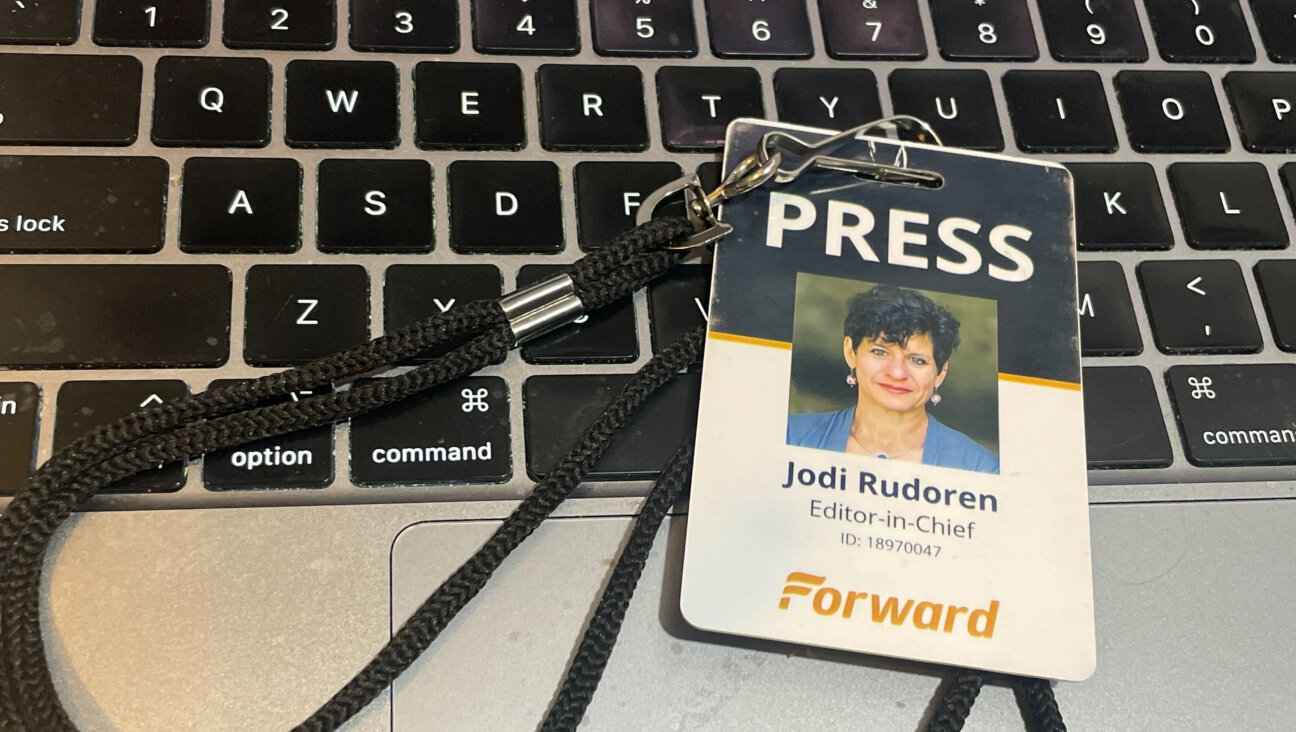
Opinion This is my last column as editor of the Forward
-
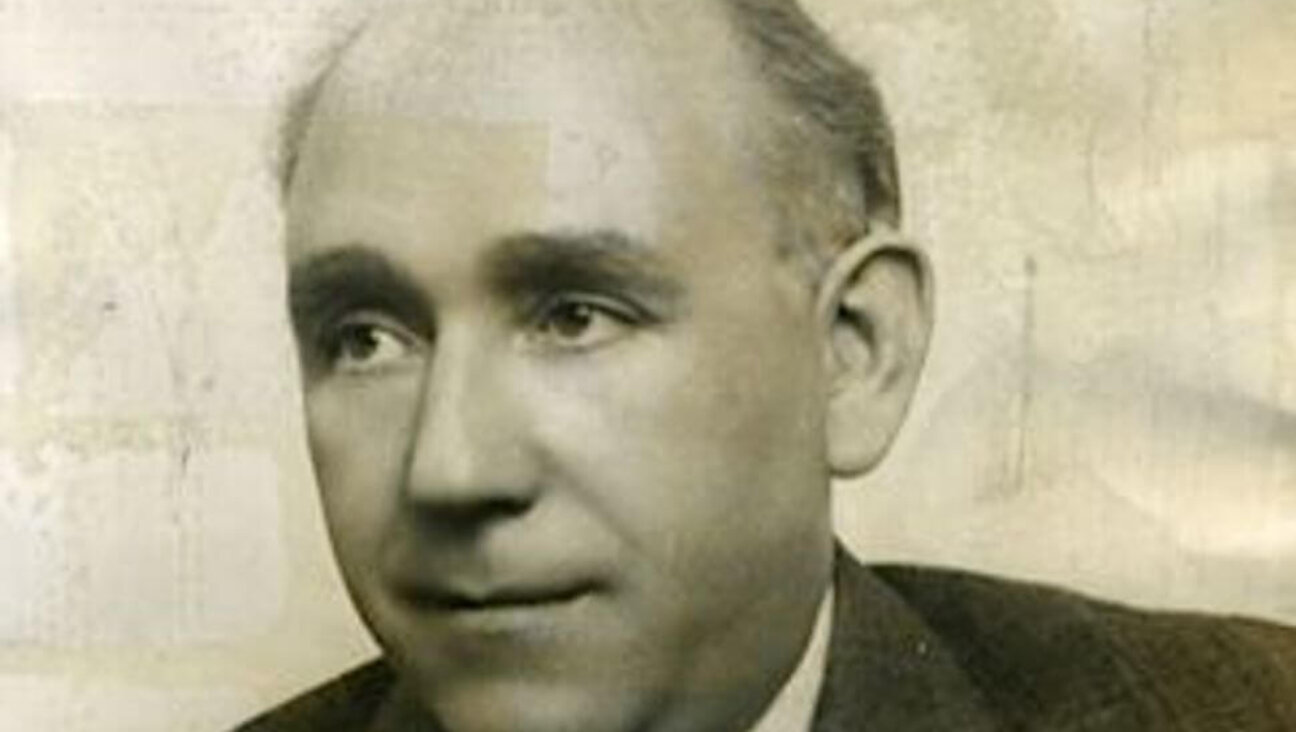
Books Unwieldy, unnerving, and a masterpiece — the last great Yiddish novel has arrived
-

Fast Forward Texas bakery reportedly becomes first bagel shop to be named James Beard Award finalist
-

Fast Forward ‘That’s Simchas Torah’: The Jewish Val Kilmer moment you might have missed
-
Shop the Forward Store
100% of profits support our journalism
Republish This Story
Please read before republishing
We’re happy to make this story available to republish for free, unless it originated with JTA, Haaretz or another publication (as indicated on the article) and as long as you follow our guidelines.
You must comply with the following:
- Credit the Forward
- Retain our pixel
- Preserve our canonical link in Google search
- Add a noindex tag in Google search
See our full guidelines for more information, and this guide for detail about canonical URLs.
To republish, copy the HTML by clicking on the yellow button to the right; it includes our tracking pixel, all paragraph styles and hyperlinks, the author byline and credit to the Forward. It does not include images; to avoid copyright violations, you must add them manually, following our guidelines. Please email us at [email protected], subject line “republish,” with any questions or to let us know what stories you’re picking up.









